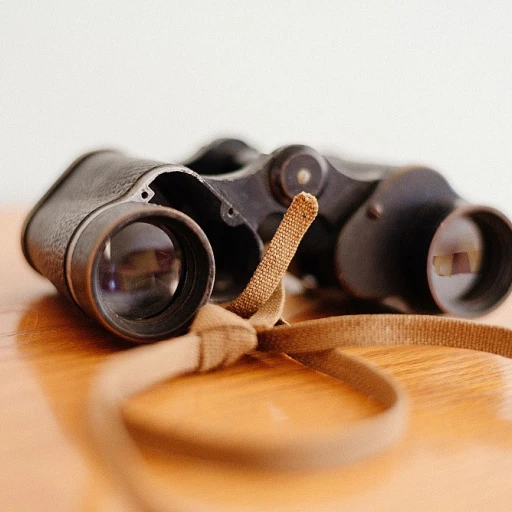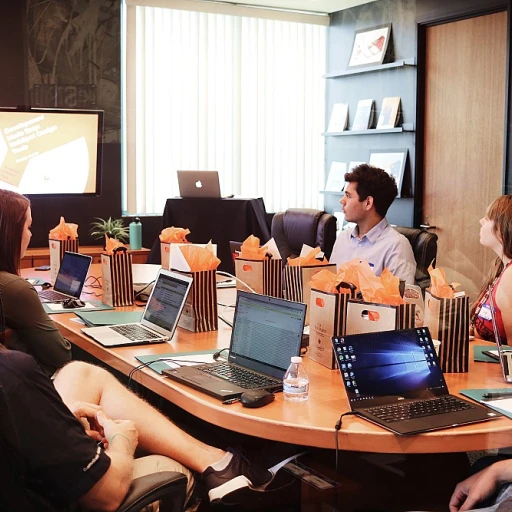
Understanding the Role of a Team Lead
Grasping the Core Responsibilities
Understanding the role of a team lead is crucial for anyone aspiring to step into this position. A team lead is not just a manager but a pivotal figure who bridges the gap between team members and higher management. They are responsible for guiding their team towards achieving project goals while ensuring a harmonious work environment. This involves a blend of leadership skills, effective communication, and the ability to motivate team members.
Balancing Leadership and Management
Team leads must possess a unique combination of leadership and management skills. Leadership involves inspiring and motivating the team, while management focuses on organizing tasks and resources efficiently. A good team leader knows how to balance these aspects to drive performance and achieve project objectives.
Communication: The Key to Success
Effective communication is at the heart of successful team leadership. A team lead must be able to clearly convey expectations, provide constructive feedback, and facilitate open dialogue among team members. This ensures that everyone is on the same page and can contribute to the team's success.
Problem Solving and Decision Making
In any team, challenges are inevitable. A team lead must be adept at problem solving and decision making to navigate these challenges effectively. This involves analyzing situations, considering various perspectives, and making informed decisions that benefit the team and the project.
Fostering a Collaborative Environment
Creating a collaborative environment is essential for a great team. Team leads should engage in activities that promote teamwork and collaboration. For more insights on how to foster better collaboration, you can explore engaging team activities that can enhance team dynamics and performance.
Key Competencies for Team Leadership
Core Competencies for Effective Team Leadership
Being a successful team leader requires a diverse set of skills and competencies. These abilities not only help in managing a team effectively but also ensure that the team achieves its goals efficiently. Here are some key competencies that aspiring team leads should focus on:
- Communication Skills: A team leader must excel in communication to convey ideas clearly and listen to team members' feedback. This skill is crucial during the interview process as it helps in understanding the questions and providing good answers.
- Problem Solving: Leaders often face challenges that require quick thinking and effective solutions. Demonstrating strong problem-solving skills during a leader interview can set you apart from other candidates.
- Decision Making: The ability to make informed decisions is vital for maintaining the team's direction and performance. This competency is often assessed through situational interview questions where candidates are asked to provide sample answers based on hypothetical scenarios.
- Project Management: Managing projects efficiently is a key responsibility of a team lead. This involves planning, executing, and overseeing projects to ensure they are completed on time and within budget.
- Motivating the Team: A great team leader knows how to inspire and motivate team members to achieve their best. This involves understanding each team member's strengths and providing the necessary support and encouragement.
- Leadership Style: Understanding and developing a leadership style that fits both the leader and the team is crucial. This involves being adaptable and open to feedback, which can be explored through behavioral interview questions.
For those looking to enhance their leadership skills, engaging in engaging outdoor activities can be a great way to develop team dynamics and leadership qualities.
Behavioral Interview Questions
Exploring Behavioral Questions to Gauge Leadership Efficiencies
In the interview process, behavioral questions play a pivotal role in revealing the intrinsic qualities of a potential team leader. These questions are integral in understanding how one has navigated past situations, thus predicting future performance and decision-making capabilities.
Effective team leaders are often distinguished by their problem-solving abilities, adeptness in project management, and the capacity to motivate team members. A good interview will delve into these competencies through well-crafted questions. For instance, when assessing leadership skills, an interviewer might ask, "Can you describe a time when you had to manage conflict within your team?" A question like this gives insights into the candidate's problem-solving skills, emotional intelligence, and communication proficiency.
Sample Answer: Sharing specific instances where they effectively mediated conflicts, improved team dynamics, or navigated significant challenges can illustrate the candidate’s leadership style and management skills. A comprehensive response might include the strategies they employed, the feedback received from team members, and the outcome of their intervention.
Another example of a pertinent question could focus on decision-making and adaptability: "Tell me about a project that didn’t go as planned – how did you adjust your approach?" Questions like these allow the interviewer to assess the candidate’s flexibility, project management skills, and ability to learn from setbacks. A strong candidate will provide examples showing accountability, a proactive attitude in course correction, and the ability to lead their team through uncertainty.
Ultimately, these questions reveal not just the technical skills of a candidate, but also their communication skills, leadership style, and their capacity to foster a productive and motivated team environment. Aspiring team leaders should showcase not only their past successes but also their growth and ability to handle future challenges, which are crucial in crafting effective development goals for their work trajectory.
For those looking to hone their skills and leadership potential further, exploring ways to craft such goals is vital. Learn more about this topic here.
Situational Interview Questions
Evaluating Real-World Problem Solving
When interviewing for a team lead position, situational interview questions are crucial in assessing a candidate's ability to handle real-world challenges. These questions help the interviewer understand how a potential leader approaches problem-solving and decision-making in various scenarios. It's not just about the answer but also the thought process behind it.
For instance, a common question might be: "Describe a time when you had to lead a project with tight deadlines and limited resources. How did you manage the team and ensure successful completion?" This question tests the candidate's project management skills, ability to motivate team members, and resourcefulness.
Assessing Leadership and Adaptability
Another critical aspect of situational questions is evaluating how a candidate adapts their leadership style to different team dynamics. A sample question could be: "How would you handle a situation where two team members have a conflict affecting their work performance?" This question aims to gauge the candidate's communication skills, conflict resolution abilities, and how they provide feedback to maintain a great team environment.
Good leaders are those who can adapt their leadership style to fit the needs of their team and the specific challenges they face. The interviewer will look for answers that demonstrate flexibility, empathy, and a focus on achieving team goals.
Decision-Making Under Pressure
Situational questions also explore how candidates make decisions under pressure. For example, "Imagine you are leading a team during a critical project phase, and a major issue arises that could delay the project. How would you address this with your team and stakeholders?" This question assesses the candidate's ability to remain calm, communicate effectively, and make informed decisions that balance immediate needs with long-term objectives.
In summary, situational interview questions are a vital tool in the interview process for aspiring team leaders. They provide insights into a candidate's leadership skills, problem-solving abilities, and how they might fit within the organization's culture and values.
Technical Skills Assessment
Technical Skills Evaluation in Leadership Roles
Evaluating a team lead's technical skills is critical to ensure the success of the team. While leadership skills such as communication, motivation, and problem solving are vital, a team leader must also have a good grasp of technical capabilities related to the team's projects. This ensures efficient management and effective guidance for team members.- Project Management: Understanding the scope of projects, timelines, and resources is essential. The interviewer may ask questions like, "How have you managed a project from start to finish?" or "What project management tools do you prefer?" This helps gauge their capability in leading and completing projects efficiently.
- Decision Making and Problem Solving: Being able to identify and resolve issues is a must-have skill for any team leader. Sample questions might include, "Tell us about a time when you had to make a tough decision to move a project forward." An ideal response should highlight analytical thinking and strategic planning.
- Technical Expertise: Depending on the industry, technical acumen is crucial. Inquiries like, "Can you describe your experience with [specific technology or tool]?" or "How do you stay updated with the latest advancements in your field?" will be significant to determine proficiency and continual learning in technical areas.
Cultural Fit and Leadership Style
Finding the Right Leadership Style and Cultural Fit
For any aspiring team lead, it’s crucial to match leadership style with the culture of the organization. This isn't just about fitting in; it's about leading effectively to ensure high team performance and successful completion of projects. During the interview process, candidates should be prepared to discuss their leadership style and how it aligns with the values and norms of the company. It's important for both the interviewee and the interviewer to ask questions that delve into how leadership styles will impact team dynamics and project outcomes. Here are some ways to gauge cultural fit and leadership style:- Experience and Examples: Candidates should be ready to provide concrete examples of past experiences where their leadership style influenced team outcomes. By sharing these, interviewees can showcase their ability to adapt and motivate team members effectively.
- Team Diversity and Inclusion: A good team leader understands the importance of diversity and inclusion within the team. Describe how your leadership style incorporates diverse perspectives and fosters an inclusive environment where communication thrives.
- Adaptability and Flexibility: Understanding when to shift leadership styles according to team or project needs is essential. Be prepared to discuss times when you had to adapt your approach in response to changing circumstances or feedback from team members.
- Feedback Mechanisms: It’s vital to have mechanisms in place for receiving and implementing feedback. This shows a commitment to continuous improvement and acknowledges the role of team members in shaping leadership approaches.













